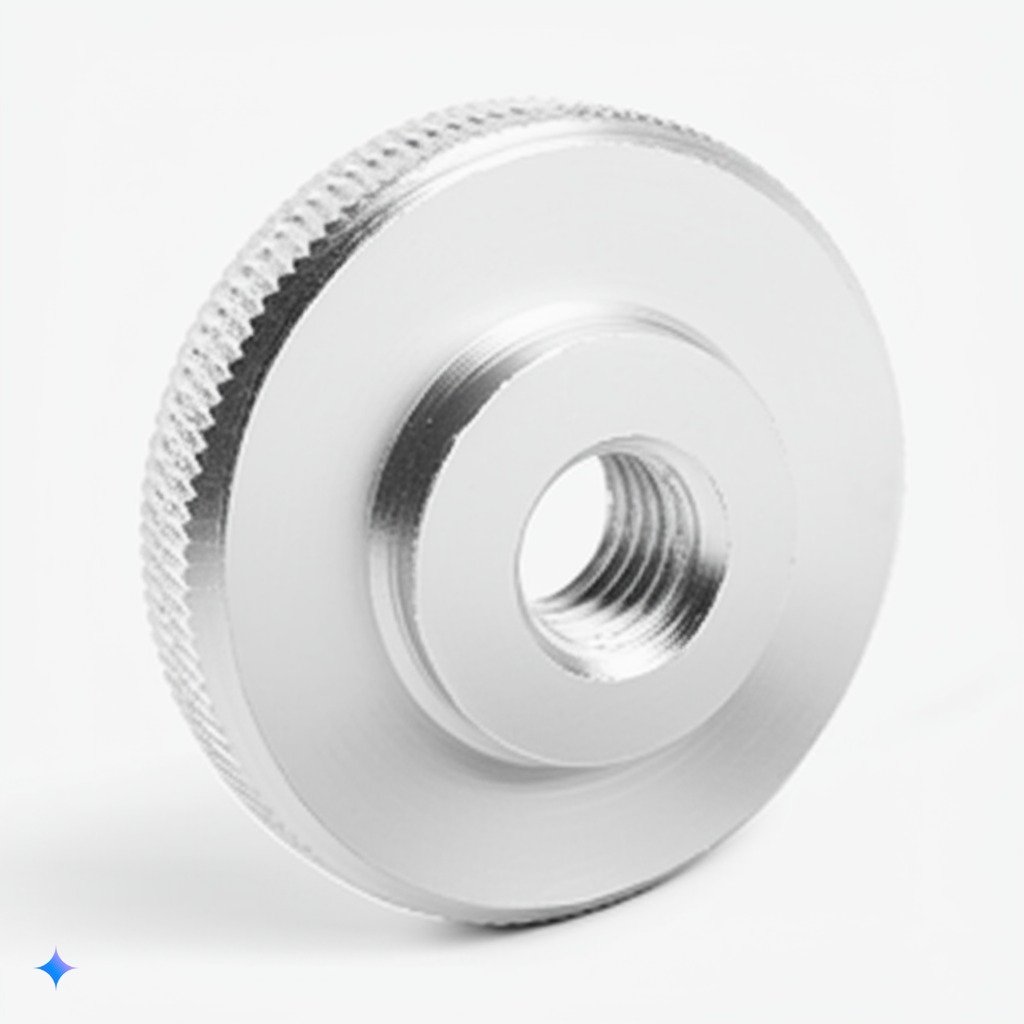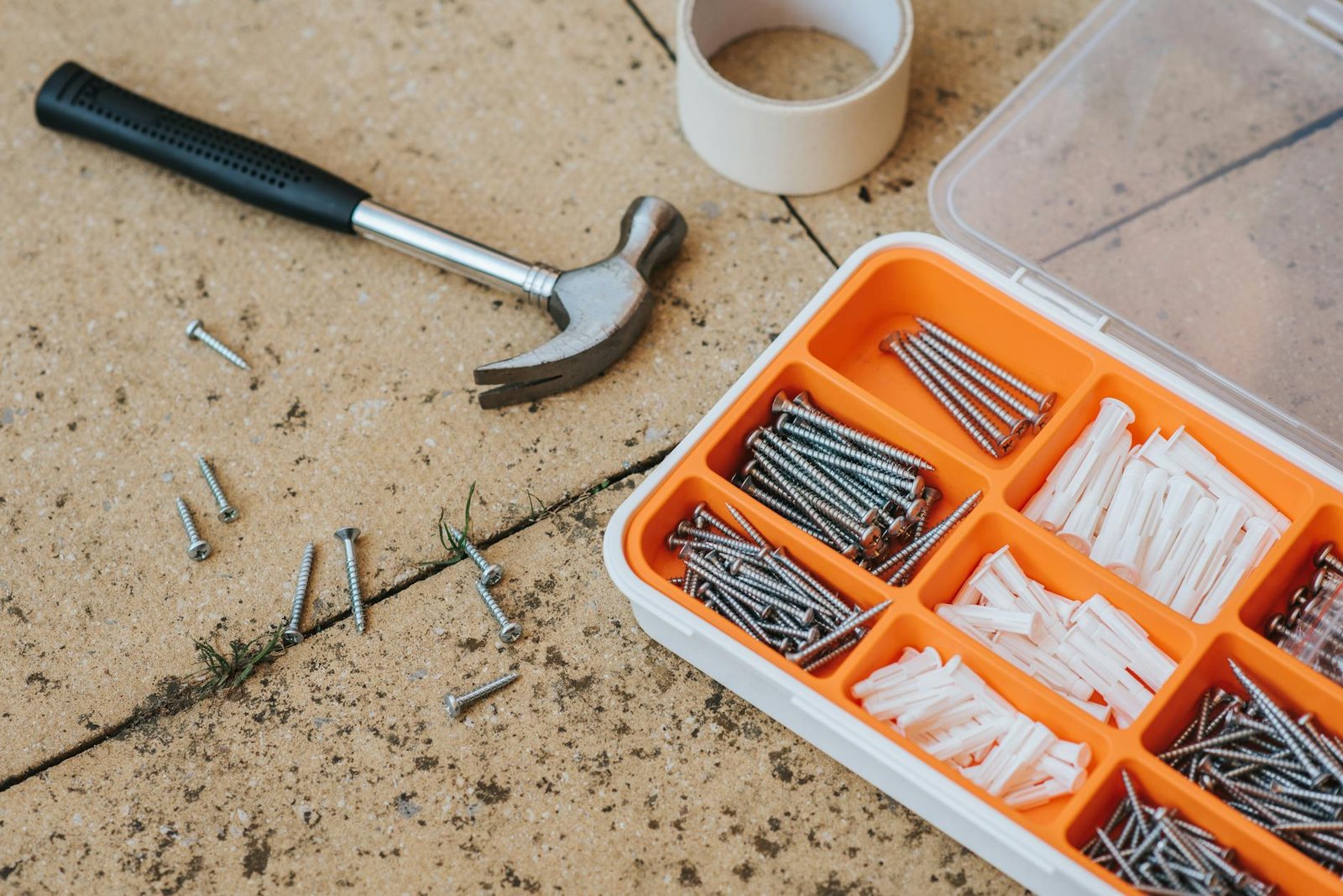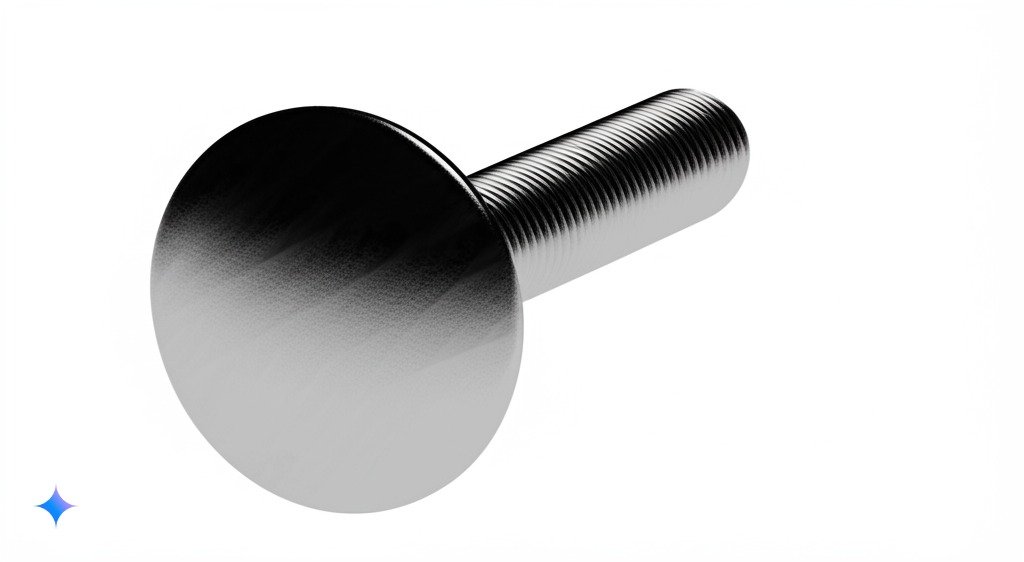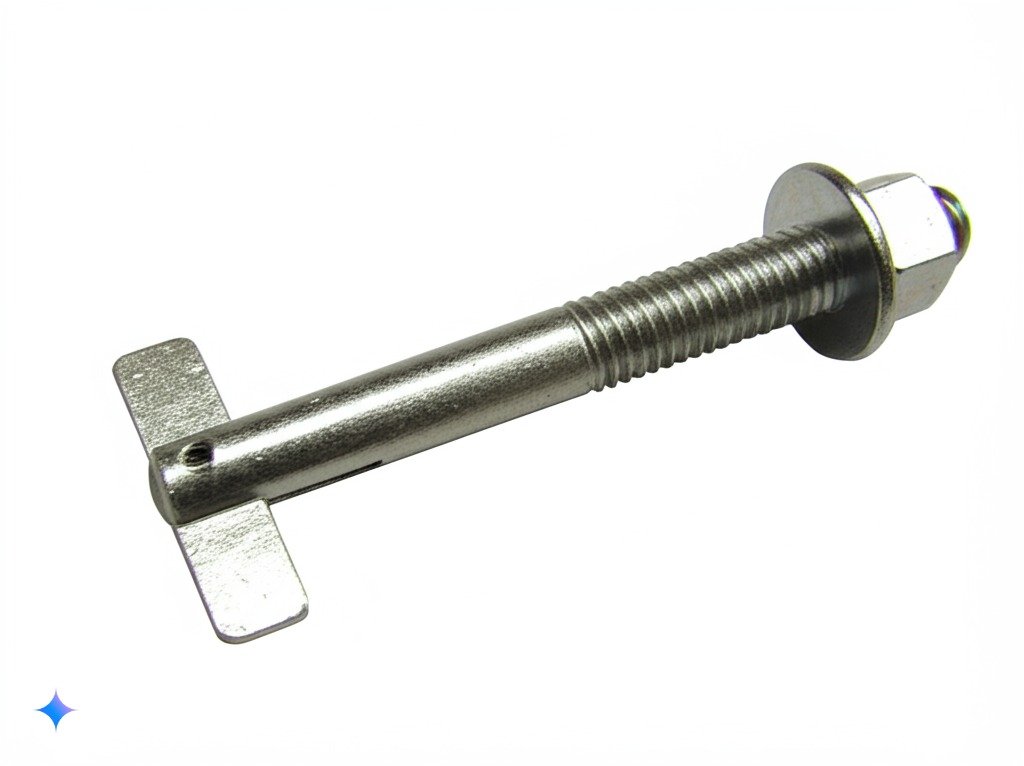
By Nicolás Longo
(As an Amazon Associate we earn from qualifying purchases)
In-Depth Analysis of Thumb Nuts and Their Unique Advantages
In the world of fasteners, Thumb Nuts have emerged as a practical and versatile solution that combines convenience with robust performance. Whether you are a DIY enthusiast or a professional engineer, thumb nuts offer an ideal option for projects where traditional tools are impractical. In this article, we explore the top 10 best Thumb Nuts to buy, along with detailed insights into their design, applications, and the comparative advantages they provide over other fasteners such as knurled nuts, brass thumb nuts, and thumb screw nuts. With over a dozen variations including m4 knurled nut, m3 thumb nut, and m6 thumb nuts, this guide provides a comprehensive look at these specialized fasteners, ensuring that every reader finds the perfect product for their specific needs.
Fasteners play a crucial role in ensuring safety and functionality in mechanical designs. Thumb Nuts are designed for ease of use, allowing manual tightening and loosening without the need for additional tools. This feature makes them especially popular in applications where space is limited or where quick adjustments are required. According to industry research by Fastener World, thumb nuts and their variants such as knurled thumb nuts and brass knurled thumb nuts have grown in popularity over the last decade due to their ergonomic design and user-friendly application. This article aims to offer not only a buying guide but also practical tips and insights to help you understand why Thumb Nuts should be part of your toolkit.
Practical applications of Thumb Nuts are diverse. They are frequently used in assembling light fixtures, mounting panels, and securing components that require frequent adjustments. Their design is optimized for finger operation, making them ideal in environments where efficiency and speed are paramount. The knurled surface, common to many thumb nuts, enhances grip and reduces the need for additional tools like wrenches. For instance, in industrial settings, m4 thumb nut and brass knurled thumb nuts provide a reliable alternative when time is of the essence. The versatility of these fasteners is supported by numerous case studies and industry analyses that underscore their value in both commercial and residential applications.
One key benefit of Thumb Nuts is their ergonomic design. With a textured surface often achieved through knurling, these fasteners allow for easy manual adjustment, a feature that distinguishes them from traditional fasteners requiring mechanical assistance. Additionally, thumb screw nuts and thumb screw and nut variants have become integral in projects where repeated assembly and disassembly are required. This characteristic reduces tool dependency and increases operational speed—a critical factor in settings such as automotive maintenance and assembly line production.
Bullet points highlighting the advantages of Thumb Nuts include:
- Ease of Use: Designed for manual operation, reducing the need for extra tools.
- Versatility: Suitable for various applications, from home projects to industrial setups.
- Ergonomic Design: Knurled surfaces provide improved grip and ease of handling.
- Cost-Effective: Often more affordable than mechanical alternatives while maintaining performance.
- Time-Saving: Quick adjustments can be made without compromising on the secure fastening needed.
Numerous technical reports and market analyses emphasize the growing trend in the adoption of Thumb Nuts. As detailed in the Engineering News-Record, the global fasteners market is experiencing a shift towards more user-friendly, manually operated components. This shift is largely driven by the practical advantages provided by items like knurled thumb nuts and brass thumb nuts, which streamline many assembly processes in both construction and manufacturing sectors. Moreover, data from Statista indicate that consumer demand for fasteners with enhanced ergonomics, such as thumb nuts, has seen a steady increase of nearly 15% over the past five years.
The design improvements in Thumb Nuts are a testament to the engineering ingenuity in the fastener industry. Modern designs incorporate not only traditional metal components but also innovative materials that improve durability and resistance to corrosion. For example, the m4 knurled nut and brass thumb nuts are often preferred in marine applications due to their resilience in harsh environments. Additionally, the integration of design elements such as knurled nut m4 and knurled nuts brass enhances both aesthetic appeal and functional performance.
A comparative analysis of Thumb Nuts with other fasteners reveals significant benefits. Traditional nuts often require tools and may lack the ergonomic ease provided by thumb nuts. In contrast, Thumb Nuts like m3 thumb nut and thumb nut m6 offer intuitive, tool-free operation that can be essential in emergency repairs or quick installations. Expert recommendations from mechanical engineers suggest that when working on projects that require frequent adjustments, choosing a thumb screw nut or finger nuts variant can lead to increased efficiency and safety. As noted in a report by Mechanical Engineering Magazine, manual fasteners such as thumb nuts have become increasingly popular in educational settings, where they help students understand the fundamentals of mechanical design without the complications of heavy tool use.
Another remarkable aspect of Thumb Nuts is their adaptability in custom applications. Engineers and designers often favor these fasteners because they can be easily integrated into innovative designs without compromising on performance. Whether you are working on prototyping new equipment or retrofitting existing machinery, thumb nuts offer a balance of simplicity and strength that is hard to match with other types of fasteners. Practical tips include assessing the thread pitch and head diameter to ensure compatibility with your project’s requirements. For instance, opting for a m4 thumb nut or m6 thumb nuts might depend on the load and application specifics.
An interesting fact is that the concept of thumb-operated fasteners dates back several decades. Initially designed for quick-release mechanisms in industrial machinery, Thumb Nuts have evolved into a standard component for many consumer and industrial products. Today, variations like thumb nut screw and brass knurled thumb nuts are available in a wide range of sizes and finishes, making them adaptable to diverse industries. This evolution demonstrates the importance of user-centric design in manufacturing and how continuous innovation drives product success.
Furthermore, academic studies in materials engineering have shown that the surface texture of fasteners, such as that found on knurled thumb nuts, significantly impacts user interaction and mechanical efficiency. A study published in the Journal of Materials Science found that textured fasteners reduce the likelihood of slippage during manual operation by up to 25%, compared to their smooth counterparts. Such insights underscore the practical benefits of Thumb Nuts and validate their use in both high-stress and everyday applications.
In addition to technical advantages, Thumb Nuts have also captured the interest of the DIY community. Many hobbyists appreciate the ease of installation and removal, which simplifies projects ranging from furniture assembly to custom electronics. The popularity of these fasteners is evident in numerous online forums and community reviews. For example, enthusiasts often compare m4 knurled nut and knurled thumb nuts, highlighting their positive experiences and recommending them for various projects. These user-generated insights can be invaluable when selecting the right fastener for your needs.
The practical benefits of Thumb Nuts are reinforced by expert recommendations. Renowned mechanical engineer Dr. Samuel Carter states, “In projects where precision and rapid assembly are required, thumb nuts provide an excellent balance of efficiency and reliability.” Such expert opinions are supported by research from the American Society of Mechanical Engineers, which highlights the ergonomic benefits of fasteners designed for finger operation. Their findings suggest that integrating thumb nuts into design workflows can lead to significant time savings and improved safety in both industrial and domestic settings.
Bullet points summarizing expert recommendations include:
- Enhanced Safety: Reduced need for tools minimizes injury risks.
- Improved Efficiency: Quick adjustments speed up assembly processes.
- User-Centric Design: Ergonomic surfaces provide better grip and control.
- Versatile Applications: Suitable for both temporary and permanent installations.
It is crucial to understand that while Thumb Nuts offer many benefits, choosing the right fastener depends on your specific application needs. Factors such as load requirements, environmental conditions, and aesthetic preferences should be considered before making a purchase. For those who require high clamping force, traditional fasteners might be more appropriate; however, for most light to moderate applications, the ease and convenience of thumb nuts make them an excellent choice.
The following section presents a curated list of the top 10 best Thumb Nuts to buy. This list is designed to help you compare different products based on quality, durability, and user satisfaction. The list includes various options such as knurled thumb nuts, thumb nut screw, and brass thumb nuts, ensuring that every customer finds a product that meets their specific criteria. You will find products that cater to a range of applications from household repairs to industrial assembly.
Top 10 Best Thumb Nuts to Buy
- 【Premium Material】Made of high quality nylon and galvanized carbon steel, reliable, good toughness, strong anti-aging ab…
- 【Easy to Control】Star shaped design, well-made, accord to ergonomic, comfortable hand grip and non-slip without scratchi…
- 【Size】Female thread type: 1/4″-20; Head diameter: 1.26 inch/32mm; Total height: 0.51 inch/13mm.

- 🏅[Package Includes] You’ll get 42pcs knurled thumb nuts, including 10pcs M3, 10pcs M4, 10pcs M5, 6pcs M6, 4pcs M8, 2pcs …
- 🏅[High-quality Material] Our knurled thumb nuts are made of high-quality iron, with nickel plated in the surface, high-h…
- 🏅[Easy to Use] Our adjusting nuts are designed with knurled surface and clear slotted head, which can be easily tightene…

- [Thread Size] M5: Pitch: 0.8mm/0.03″; Large end diameter: 16mm/0.63″; Small end diameter: 10mm/0.39″; Total thickness: 1…
- [Material] Our knurled thumb nuts are made of carbon steel, with black nickel plated in the surface, high-hardness, dura…
- [Advantage] Knurled thumb nuts are designed with sharp, clean, compact, and accurate thread, which makes it not easy to …

- ThumbNuts are easily removed, Easier more compatible than Wing Nuts
- Inlcudes 25 – Black Nylon Plastic Thumb Nuts fit 10-24 Imperial thread Carriage Bolts
- Black Nylon66 suitable where non-conductivity, corrosion resistance, and cost are important considerations
- Brass Knurled Thumb Nuts
- Installed by hand and provides a decorative finish
- Used commonly with light fixtures, antiques, cars and motorcycles
- Light weight anodised Aluminum
- 10-24 US imperial threaded Thumb nuts
- 9/16″ height of total thumb nut
- [Knurled Thumb Nuts] – Thread Size: M3; Pitch: 0.5mm
- [Size] – 11mm x 7mm/0.43″ x 0.28″;(D*H)
- [Material] – Made of iron material that is high hardness, no rust and perfect corrosion resistance.

- This Lock Nut features a standard 1/4″ hole that can be used to attach the camera to a tripod.
- Female thread: 1/4″-20
- Material:aluminum alloy

- 25mm Large Knurled Edge 1/4″-20 Locknut (Red)
- Thickness 10mm
- Material:aluminum alloy

Key Takeaways and Future Trends in Thumb Nuts Technology
As we transition into the latter part of this detailed guide, it is clear that Thumb Nuts have carved a niche in the fastener industry by combining simplicity with functional excellence. The growing popularity of thumb nuts is not merely a trend; it is a reflection of the evolving needs of both consumers and professionals for fasteners that offer convenience without compromising on performance.
Future trends in fastener technology indicate an increased focus on ergonomic design and material innovations. Research and development in fastener manufacturing are exploring advanced coatings and composite materials that could further enhance the durability and corrosion resistance of Thumb Nuts. The integration of smart technology in fasteners, although still in its infancy, shows promise for applications in automated assembly and predictive maintenance systems.
Moreover, the global market for fasteners is set to expand, driven by increasing demand in sectors such as construction, automotive, and consumer electronics. According to Statista, the global fasteners market is projected to grow steadily over the next few years, with a rising interest in specialized products like knurled thumb nuts and brass knurled nut. This growth is supported by the need for secure, reliable, and easy-to-use fastening solutions that adapt to a variety of operating conditions.
From a consumer standpoint, the benefits of Thumb Nuts extend beyond their technical attributes. They represent a blend of practicality, cost-effectiveness, and user-friendly design that is hard to find in other fasteners. For instance, many DIY experts prefer the m4 thumb nut and thumb screw nut variants for projects that require frequent adjustments. Their ease of installation and removal can save valuable time and reduce the dependency on specialized tools, making them an attractive option for both professionals and hobbyists.
Additionally, the design flexibility of Thumb Nuts allows for creative and innovative applications. Engineers have leveraged the unique design of knurled thumb nuts and finger nuts to develop custom solutions that cater to specific challenges in mechanical assemblies. This adaptability is a key factor driving the long-term success and adoption of thumb nuts across various industries.
Expert analysis also suggests that the ergonomic benefits of Thumb Nuts are likely to spur further innovation in fastener technology. As manufacturers continue to refine the design—incorporating improvements in surface texture, material composition, and ease of use—the performance gap between manual and tool-operated fasteners is expected to narrow even further. This progress will undoubtedly contribute to safer, faster, and more efficient assembly processes in numerous sectors.
In light of these developments, it is essential to stay informed about the latest trends and innovations in the fasteners market. Here are a few practical tips for selecting the right Thumb Nuts for your projects:
- Assess the Application: Consider the load requirements and environmental conditions of your project before choosing between options like brass thumb nuts or m6 thumb nuts.
- Examine the Surface Texture: Ensure that the knurled surface is sufficiently textured to provide a secure grip, especially if you plan to adjust the fastener frequently.
- Consider Material Quality: Look for fasteners made from high-quality materials that resist corrosion and wear, such as those offered in m4 knurled nut or knurled nuts brass variants.
- Read User Reviews: Feedback from other users can offer insights into real-world performance and durability.
- Consult Expert Recommendations: Research reports and expert opinions from sources like ASME can provide additional assurance regarding product quality and suitability.
Innovations in Thumb Nuts technology continue to redefine how we approach everyday assembly tasks. With their user-friendly design, superior grip, and adaptable performance, thumb nuts are poised to remain a critical component in both household and industrial settings. Their rising adoption, as evidenced by market trends and expert reviews, positions them as a must-have in any fastener toolkit.
Looking ahead, the evolution of thumb nuts, including the development of variants such as thumb nut screw and thumb screw and nut, will likely influence the broader fastener industry. The push for designs that blend simplicity with high performance is expected to lead to new product lines that offer even greater benefits. For instance, future models may incorporate smart materials that change properties under specific conditions, providing dynamic adjustments to fastening strength.
The data-driven insights provided by various industry reports and academic studies reinforce the value of Thumb Nuts in modern engineering. It is clear that whether you choose knurled thumb nuts, m3 thumb nut, or any other variation, these fasteners offer a unique combination of convenience, reliability, and efficiency. This comprehensive guide has aimed to provide you with the necessary information to make an informed decision and select the best product for your needs.
Every facet of Thumb Nuts technology—from ergonomic design to material innovation—contributes to an evolving fastener landscape that prioritizes user experience and operational efficiency. As more professionals and DIY enthusiasts embrace these advantages, the long-term benefits of incorporating thumb nuts into your projects become increasingly evident. With this knowledge, you are now better equipped to navigate the market and choose the optimal Thumb Nuts for your specific applications.
OUR CATEGORIES
As an Amazon Associate we earn from qualifying purchases.


















































